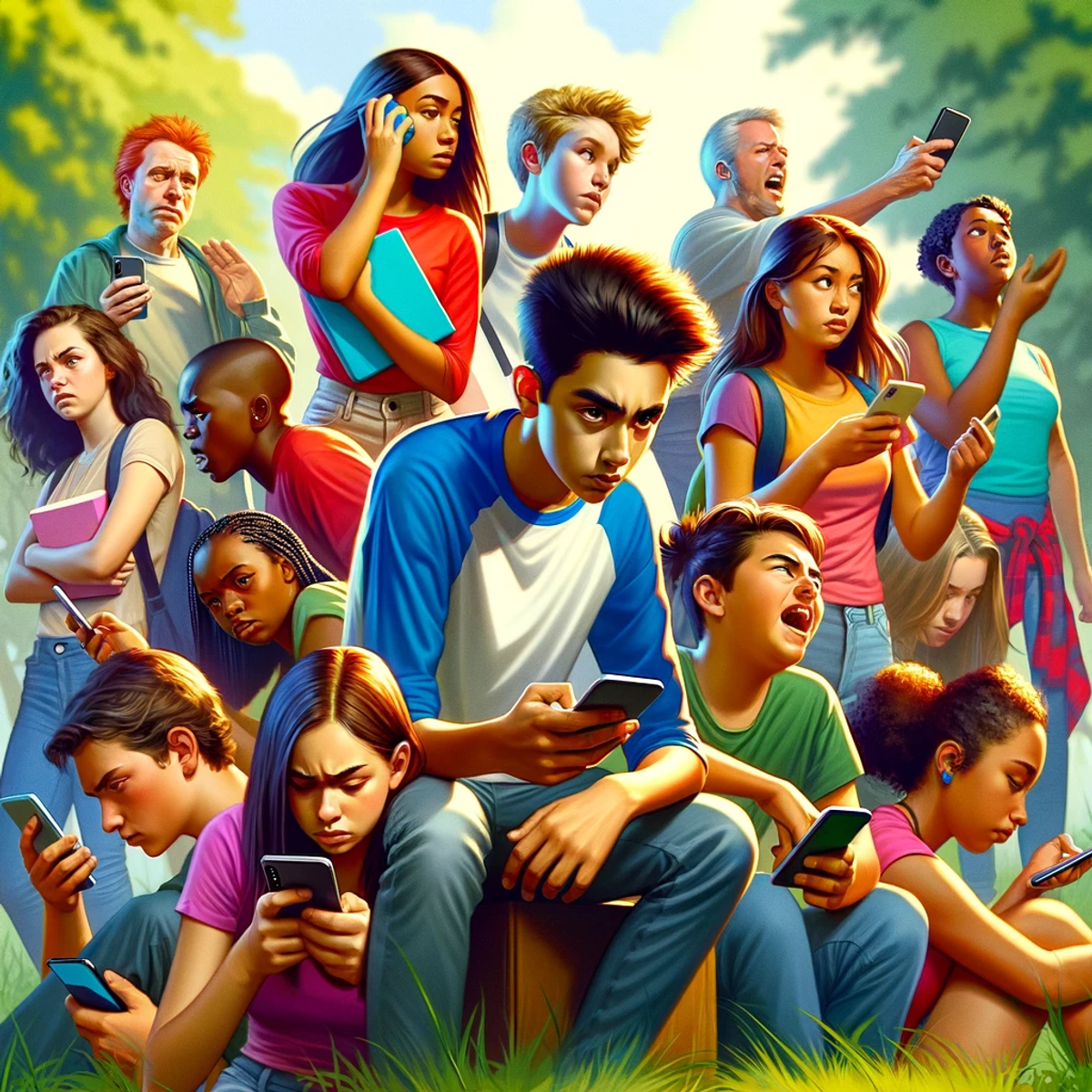Be Well and Prosper
Parental self-care and self-compassion

Be Well and Prosper
Parental self-care and self-compassion


I first got a cell phone when I was in seventh grade. It was a few years after most of my friends got their phones, and I immediately felt a part of the conversation again. Before I got a phone of my own, I often would stay home from social events because I didn't have a guaranteed way to contact my parents once there, and in times of school emergencies. I felt helpless. When I got my phone, all at once I had the ability to communicate and my mindset was changed forever.
There's a recurring debate surrounding teens and phone use. Many believe that without productivity and stimulation, teenagers will grow lethargic and not end up as functioning members of society. But this conversation isn't new: In the 1960s, society blamed television. In the '70s and '80s, it was rock music. I understand the pros and cons of cell phone use. Since I got my phone, my attention span shortened, I tended to isolate myself from face-to-face interactions more often, and it became easier to disappear into my device for hours. But phones also help to connect my generation. They give us access to forms of activism I hadn't previously been aware of. My phone made it effortless to connect with family I hadn't talked to in years and helped me develop a sense of independence.
Research suggests that cell phones have altered almost everything about human life, from the way we sit, speak, and think to the way we communicate with each other and transmit and consume information. Many parents are scared about what this means for their children's future. And I don't necessarily blame them—during COVID-19, our devices are more a part of our lives than ever. But there are big pros of cell phone use right now, too. I personally hadn't seen anyone outside of my immediate family for more than two months during stay-at-home orders. Without the assistance of technology and specifically our phones, I think that self-quarantine would have been unbearable. I want to help parents of teens understand what phone addiction feels like and how they can help encourage us to limit our phone use without it leading to fights and punishments.
The average teenager spends around seven hours and 22 minutes on their phone per day, and kids 8 to 12 years old spend about 4.5 hours per day. For many, phones have become an emotional crutch. There's lots of research that suggests that social media is bad for the average teenager, raising anxiety and low self-esteem in those who regularly use it. However, others argue that since technology is so deeply ingrained in Generation Z and Millennial culture, there is no way to healthily remove it. Our phones are helping us stay connected. Whether they are allowing us to participate in Zoom classes, FaceTime among friends, or enjoy entertainment, our phones and devices play an important role in the everyday lives of kids.
My generation, Gen Z, has grown up with devices, the first iPod coming out in 2001, and the first iPhone in 2007. We don't know life before cell phones—we never used payphones or had to print out a map for a road trip. Having access to this technology on a 24-hour basis caused us to develop a dependency upon our devices. Using technology excites us, rewards us with serotonin whenever we complete a task in a video game or get a text from a friend. I use my phone for more than just communication. At times, I experience severe anxiety and without this crutch, it's hard for me to function as I want to.
According to Teenmag.com, more than 65 percent of parents said that they take away phones or the internet as punishment. As a teen I want parents to know that while this may keep us off our phones in the house, it often has a visible negative effect on us.
To fall asleep, I often listen to music, watch calming videos, or call someone close to me. I had developed my own little pattern to ease my mental illness and anxiety at a time where it's nearly unbearable—the night. When my parents used to take away my phone, I would stop sleeping all the way through the night. I started being dishonest, pretending to put my phone away but actually keeping it (sorry, Mom). These were my attempts to manage my own anxiety and reestablish the pattern that worked for me.
For a long time getting my phone taken away at night made me feel like an island. I couldn't practice my calming night time routines or get in contact with my friends if I needed to. I hated the feeling of waking up to texts of struggling friends and knowing I wasn't there to help them. Conversations continued without me, my relationship with my partner had to be altered so we could talk before my proclaimed bedtime. As teens, when we get punishments we don't like, we find ways to break the rule by any means necessary. Some teens sneak out or experiment with substances. I understand why my parents asked me not to use my phone at night, but it did not do what they hoped—it didn't help me go to sleep earlier.
Parents should start monitoring their children's phone use from the moment that their child gains access to a phone, says clinical psychologist Lisa Damour, Ph.D., Parents advisor and author of The Emotional Lives of Teenagers. "In fact, when tweens or teens are lobbying for their first phone, parents have tremendous leverage about what the rules will be when they get one. I encourage parents to start off with a lot of limitations, some of which will become relaxed over time."
Though teens and adults alike are relying on technology even more for school and even work, Dr. Damour says it's important for parents to look for signs of phone addiction in their teens.
"I would worry if a young person seems unable to regulate their emotions, or their ability to fall asleep at night, without access to a phone," she says. "This can be prevented on the front end with some basic parameters around phone access, such as banning phones from bedrooms, meals, in-person family times, and so on. But if it's too late and a young person has come to feel dependent on a phone in order to feel calm, that is something to be taken seriously."
Dr. Damour advises parents to underscore the importance of not needing to depend on any outside force (be it a drug, another person, a phone) to feel calm or emotionally secure. "If a teenager is unable to take steps toward operating independently of his or her phone, I would have the parent offer to help the young person build his or her emotional regulation skills or find a professional who can help the teenager to do so."
From: https://www.parents.com/parenting/better-parenting/teenagers/teen-talk/teen-phone-addiction
Mr Ben Lawless
Researcher